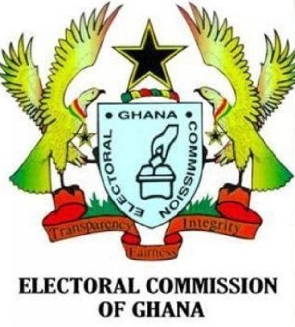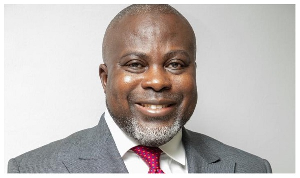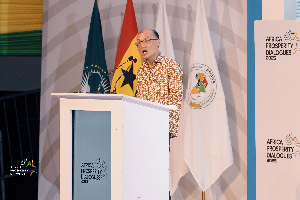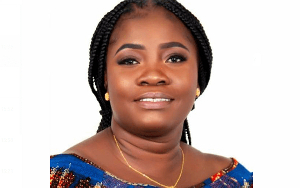A group of persons with disability has raised red flags over the “persistent stance” of the Electoral Commission (EC) to compile a new voters’ register ahead of the 2020 general elections.
The Concerned Persons with Disability of Ghana says the EC, despite numerous calls from some organisations to get them to stop the controversial move in the face of the COVID-19 pandemic, is going ahead without considering the “concerns and frailties of persons with disabilities (PWDs)”.
Speaking on Dwaboase on Power 97.9 FM, National Advocate of the group, Frederick Assor noted that the electoral management body has not engaged the leadership of PWDs on how they can go through the exercise without frustrations.
“We are yet to be informed about how assistive agents will function in the midst of the Covid-19 pandemic when the registration exercise begins,” Assor told host Kwame Minkah.
According to him, the group is likely to face serious challenges owing to the fact that the EC has advertised how precautionary measures would be adhered to by it’s staff and Ghanaians who would go through the registration exercise without a hint on how PWDs, particularly the visually impaired would benefit from the civic exercise.
Assor said most of the PWDs have little or no formal education hence if they are not assisted by others may increase their risk of contracting the Coronavirus which has infected 7,303 persons in the country.
“The government has indicated only 25 persons can gather at a time [for a private funeral] which means if we are to go by that and about 20 of our members come along with their relatives to assist them at the polling centres, there would be more than the approved number and that increases one’s risk of contracting the virus,” Assor said in Akan.
He added that the group had already released a statement to notify the EC on the frustrations they would be faced with during the exercise, and pleaded that the EC halts the exercise to register all Ghanaians of voting age and rather stick to the current register.
“Dr Bossman Asare [Deputy EC Boss] was my lecturer at University of Ghana. He taught me Political Science, I am pleading with him to tell her boss to halt the exercise to help save lives, ” Assor pleaded.”The EC must be reminded that many PWDs are unable to absorb undue panic due to the challenges that certain individual conditions present.”
New C.I and Challenges for PWDs
In an earlier statement, the Concerned Persons with Disability of Ghana had narrated that, “this Covid-19 season has revealed how the poor and vulnerable are dangerously exposed and how people without resource security quickly become destitute” and their rights such as the right to register with the EC and vote have been jeopardized without consideration, adding, “For instance, many PWDs have already through the previous process, acquired the Voter Identification Card by undergoing various forms ofdifficulties and do not have any other form of identification.”
“We have been reliably informed that the EC has presented to Parliament a Constitutional Instrument to amend C.I 91 to make the Ghana Card and passport the only forms of identification to be presented before one can be captured onto the intended new voters’ register for the 2020 Presidential and Parliamentary elections,”the group acknowledged.
However, the leadership said “The very basic right for many PWDs to vote will be jeopardized if the EC succeeds with this intended amendment and compilation because many do not have passports. Many have not registered for the Ghana Card and those who have overcome the registration challenges have also not received their cards. The basic right of the vulnerable are hardly protected and the very few that are available are also being actively taken away.”
The group further posited that, “Apart from the possibility of being disenfranchised, more persons with disability have woken up to the civic responsibility of exercising their inalienable right to vote and more blind persons are looking forward to be trained to independently vote by using tactile ballots.”
The group also noted that the increasing number of people who desire to acquire this basic skill require that the EC allocates adequate time for nationwide training.
“When are the blind going to receive this training?” They quizzed and added, ” the fact that it has not been mentioned in the context of the intended new register is indeed very worrying.”
Fear of Violence
The PWDs group said in spite of the socio-economic consequences the COVID-19 pandemic presents, they have to deal with “the frailty of individual human and environmental conditions” while citing the violence that could mar the exercise.
“What actually compounds the plight of PWDs during this period is the unwanted violence that this new register portends. PWDs abhor the hints, speculations and threats of public violence that this new register has already generated in the media. This uneasy cloud of violence is generated out of the perception of unfair handling of people’s voting rights,” the group said.
“This can be dispelled by the EC by reconsidering its pursuit of a new and unpopular register and adopt a position that works for all Ghanaians. The EC must note that children, women, PWDs and the elderly are known to be the most vulnerable in violent situations, ” the group cautioned.
The group also sought for the attention of civil society organizations,traditional leaders, religious bodies, advocates for disability rights and all political parties ” to reiterate our concerns to the EC and for it to make the effort to avail itself with the list of frustrations of PWDs, address them and to reconsider its decision to discard the existing register which is the basic evidence of the eligibility of all currently registered voters.”
“Concerned Persons with Disability of Ghana continue to seek full social inclusion and sustainable development for all PWDs irrespective of their political persuasion,” the group concluded.
General News of Friday, 29 May 2020
Source: myxyzonline.com

















